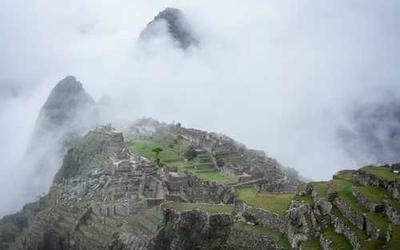🇧🇷 Brazil
Brazil Travel Guide - Samba, Futebol & Jeitinho Brasileiro
5 destinations · Budget level 2
Overview
Brazil is continental-sized contradiction - incredible natural beauty alongside urban chaos, warm welcoming people with high crime rates, celebration culture coexisting with deep inequality. Brazilian culture revolves around relationships, family, and social connection - strangers become friends instantly. Futebol transcends sport becoming national identity and unifying force, with similar passion found across South America including neighboring Argentina. Music from samba to funk carioca defines regional identities. 'Jeitinho brasileiro' (Brazilian way) means creative rule-bending to solve problems locals both criticize and rely upon. Portuguese language with unique Brazilian evolution and heavy regionalism. Racial democracy myth masks persistent colorism and inequality. Food culture celebrates African, Indigenous, and Portuguese fusion with regional variations, sharing Amazonian influences with Peru. Bureaucracy legendary - simple tasks require patience and multiple attempts.
Travel tips
Safety Consciousness Essential: Locals don't display phones on streets, use Uber not taxis, avoid empty areas at night - follow their lead without paranoia. Jeitinho Brasileiro Reality: Rules are flexible, locals find creative solutions, bureaucracy requires patience and sometimes 'friendships,' embrace the chaos. Late Everything: Dinner starts 9 PM, parties begin midnight, Brazilians always late, adjust schedules to Brazilian time flexibility. Portuguese Essential: English limited outside tourist areas, locals appreciate any Portuguese attempt, Spanish understood but don't assume it's the same language. Cash and Card Mix: ATM fees brutal, locals use PIX instant bank transfers, credit cards widely accepted, carry some cash for street vendors. Carnaval Period: Country shuts down completely, locals travel or party, prices surge, book months ahead or avoid entirely if not celebrating.
Cultural insights
Brazilians incredibly warm and social - making friends easy, strangers invited to parties, personal space closer than Europeans or North Americans. Family central to life with multi-generational gatherings regular, Sunday lunch sacred tradition. Class inequality stark and visible - locals navigate economic divides daily, privilege and poverty coexist uncomfortably. Racial complexity beyond simple categories - locals acknowledge African heritage while colorism persists, pardo (mixed race) largest group, racial democracy myth being challenged. Futebol unites across class and race - locals worship players as gods, every bar becomes stadium during matches. Bureaucracy kafkaesque - simple tasks require multiple documents and trips, locals accept with frustration and creative workarounds. Music genres define regions - samba in Rio, forró in Northeast, sertanejo everywhere with Goiânia as the sertanejo capital, funk carioca in favelas, locals identify through musical preferences. Brazil boasts 25 UNESCO World Heritage sites including historic colonial towns, natural wonders, and cultural landscapes. Carnival either life purpose or urban nightmare depending on local perspective - participant or escapee, no middle ground.
Best time to visit
Summer (December-March): Hottest and rainiest, peak beach season, Carnival in February/March, 30-40°C, locals vacation domestically, highest prices. Autumn (April-June): Cooling temperatures, less rain, locals prefer autumn for traveling, comfortable 20-30°C, better availability. Winter (July-September): Dry season most regions, cooler south (10-20°C), warm north and northeast (25-30°C), locals escape cold to beach, lowest prices. Spring (October-November): Warming up, rain increasing, locals prepare for summer, flowers blooming, temperatures 25-35°C. Regional variations extreme - Amazon always hot and wet, Northeast hot and dry certain months, South experiences four seasons, locals plan around regional climates.
Getting around
Domestic Flights: Huge distances require flying, Gol and Latam airlines, locals book early for deals, budget airlines make travel possible. Buses: Extensive network, luxury sleeper buses comfortable, locals prefer overnight buses to save hotel costs, safe and affordable. Uber Dominance: Replaced taxis in cities, locals use exclusively for safety and pricing transparency, regular taxis rip off tourists. Metro Systems: São Paulo, Rio, Brasília have metros, locals use daily, crowded but efficient in rush hours. Cars: Rental useful for beaches and rural areas, locals drive aggressively, tolls expensive on highways, GPS essential. Motorcycle Taxis (Mototaxi): Quick but dangerous, locals use in traffic, tourists avoid, delivery drivers mostly Venezuelans in crisis.
Budget guidance
Budget Travel (€20-45/day): Hostels €10-20, por kilo buffets €6-12, buses €5-15, free beaches and parks, street food. Mid-Range (€45-90/day): Pousadas €30-60, restaurants €15-30, domestic flights €40-100, tours and activities €20-50. Luxury (€90+/day): Hotels €80-200+, fine dining €40-100+, private guides and transfers, premium eco-lodges. Prices vary wildly by region - Northeast and North cheaper, Rio and São Paulo expensive, South mid-range. Dollar and euro fluctuations affect real (R$) dramatically - locals monitor exchange rates obsessively.
Language
Brazilian Portuguese very different from European Portuguese - pronunciation, vocabulary, and slang diverge significantly. Spanish understandable written but spoken Portuguese sounds completely different, locals appreciate Spanish attempt but prefer Portuguese. English very limited outside tourist areas and educated elite - locals rarely speak English, learning basic Portuguese essential. Regional accents strong - carioca (Rio), paulista (São Paulo), nordestino (Northeast) sound different, locals identify origins immediately. Slang and informal language dominates - textbook Portuguese sounds formal, locals teach real conversational language. Spanish speakers understand written Portuguese better than spoken - pronunciation is Portuguese's biggest challenge for learners.
Safety
Brazil has real safety concerns but locals navigate daily with awareness not fear. Don't display phones, jewelry, cameras on streets - locals put away when walking. Use Uber not street taxis - locals trust app-based transport, traditional taxis notorious for scams. Avoid empty streets and favelas without local guide - locals know safe zones and routes instinctively. Beach belongings minimal - bring only what you're willing to lose, locals hire beach attendants or go in groups. ATM safety - use machines inside banks during daytime, locals aware of kidnapping risk at night. Emergency: 190 (police), 192 (ambulance), 193 (fire). Tap water generally safe in cities but locals drink filtered or bottled. Dengue, Zika risk in tropical areas - mosquito protection essential, locals suffer outbreaks regularly.
Money & payments
Brazilian Real (R$) is currency. Exchange rate volatile - locals watch dollar/real obsessively, timing currency exchange strategic. ATMs charge high fees - €8-12 per withdrawal, locals minimize transactions, withdraw maximum amounts. PIX instant transfers revolutionary - locals use this free system instead of cash or cards, foreigners need Brazilian bank account. Cards widely accepted - credit cards preferred, installment payments (parcelamento) popular with locals. Typical costs: Por kilo lunch R$25-45 (€4.50-8), Beer R$8-15 (€1.50-2.70), Uber short ride R$15-30 (€2.70-5.40), Coffee R$5-10 (€0.90-1.80), Mid-range hotel R$180-350 (€32-63)/night. Tipping: 10% service charge included at restaurants, locals don't add extra, tipping drivers and guides appreciated but not mandatory.
Destinations in Brazil

Curitiba, South America
Curitiba: Green Capital & Urban Innovation
BRT Worship: Locals treat the tube-shaped bus stations (Estações Tubo) with pride bordering on obsession – these glass cylinders invented by Jaime Lerner are…

Florianópolis, Santa Catarina
Florianópolis: Island Magic Meets Brazilian Tech Hub Paradise
Silicon Island Nickname: Tech startup hub of Brazil, locals (manezinhos) watch newcomers transform island, love-hate relationship with development. 42 Beache…

Goiânia, South America
Goiânia: Sertanejo Capital & Cerrado Soul
Bar Culture Over Beach Culture: Goiânia is perfectly summed up by the famous local saying 'Já que não tem mar, vamos pro bar!' (Since there's no sea, let's h…

Recife, South America
Recife: Venice of Brazil, Frevo Soul
Bridge City Navigation: Recife has 50+ bridges connecting islands, rivers, and districts - locals know the city is built on water and some areas sit below se…

Vitória, South America
Vitória: Island Capital, Moqueca & Atlantic Soul
Carnival Week Early: Vitória celebrates its [Carnival](https://en.wikipedia.org/wiki/Brazilian_Carnival) one week BEFORE the rest of Brazil at Sambão do Povo…
